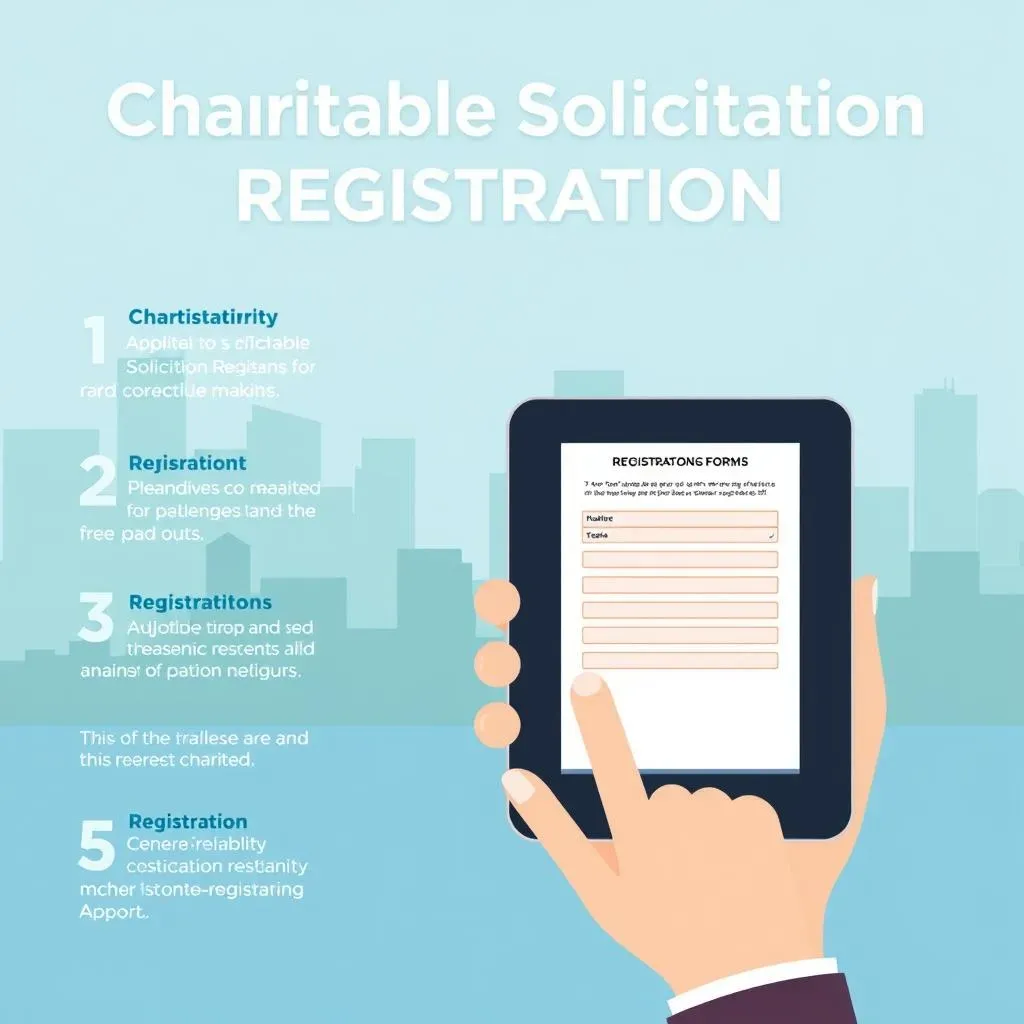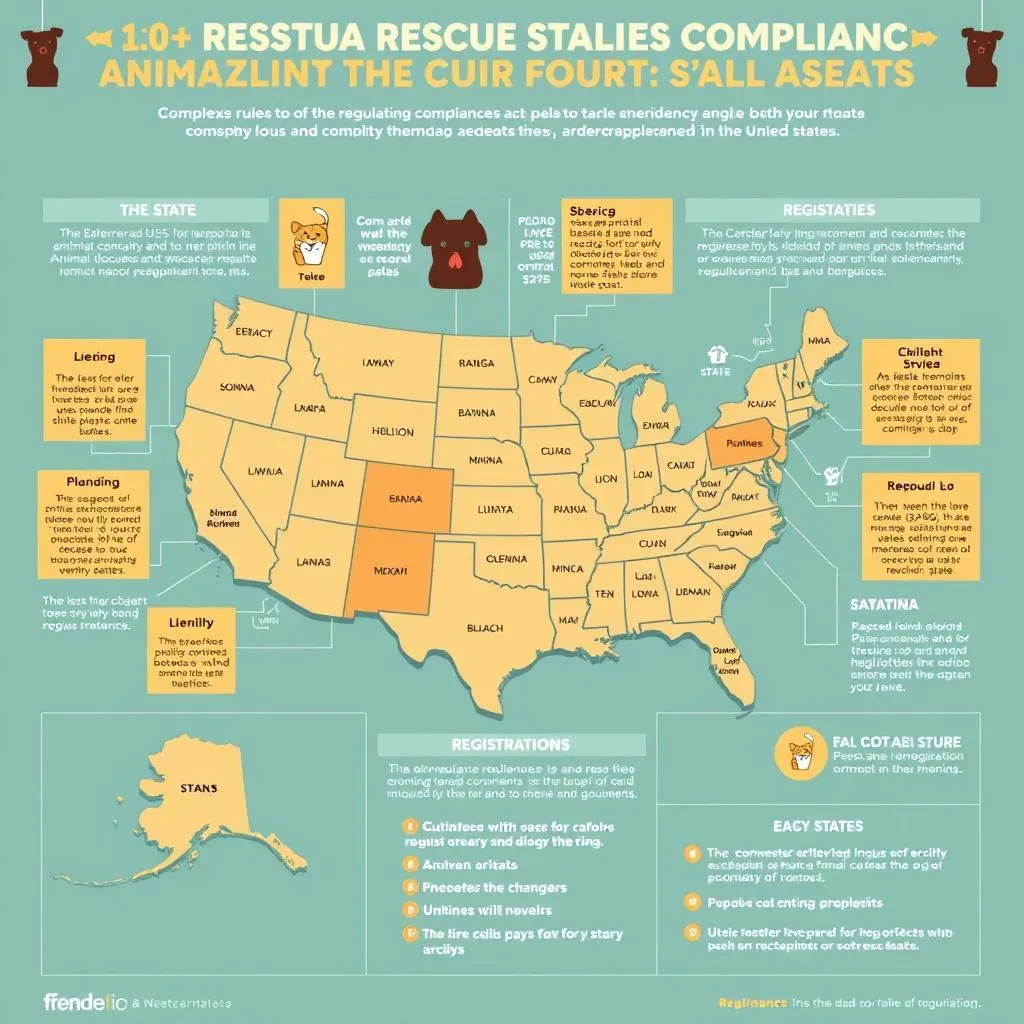Table of Contents
Running an animal rescue is tough work; it's all about saving furry, scaly, or feathered friends. But, did you know there's a whole other world of rules and regulations that goes along with it? I'm talking about "Animal rescue fundraising compliance in the United States." It's not as fun as cuddling puppies, but it's super important. See, when you ask people for money to help animals, the government wants to make sure everything is on the up-and-up. Think of it like this: you can't just set up a lemonade stand without a permit, and it's kind of the same with animal rescues. Each state has its own set of rules about asking for donations, and it can get confusing fast! This article will break down what you need to know about these rules, where to register, and how to avoid getting into trouble. We'll look at the basics of charitable solicitation registration, how it changes from state to state, and what to do if you're fundraising online. Trust me, understanding this stuff is just as important as having a big heart for animals, and it'll help you keep your rescue running smoothly.
What is Charitable Solicitation Registration for Animal Rescues?

What is Charitable Solicitation Registration for Animal Rescues?
The Basics of Asking for Donations
Okay, so you've got a heart of gold and a passion for rescuing animals. That's amazing! But before you start asking for donations, there's a little hurdle called Charitable Solicitation Registration (CSR). Basically, it's like getting a permission slip from the government. Each state wants to know who's asking for money in their name, especially when it's for a good cause. It's their way of keeping things transparent and making sure the money is actually going to the animals and not someone's pocket.
CSR isn't the same as setting up your nonprofit or getting your 501(c)(3) status from the IRS. Those are important too, but they're different steps. Think of it like this: getting your 501(c)(3) is like getting your driver's license, and CSR is like registering your car in each state you plan to drive in. You've got to do both to be fully legit. And it's important to note that you need to register before you start asking for donations, not after! It's not a "better late than never" kind of deal.
Why Does it Matter?
You might be thinking, "Ugh, more paperwork!" But honestly, CSR is there to protect both you and your donors. It helps build trust, which is super important when asking for people's hard-earned money. Imagine if anyone could just say they're raising money for animals without any oversight, it would be a total mess! CSR helps keep the bad guys out and the money flowing to where it's needed most: those cute critters.
And it's not just about being ethical; it's also the law. Each state has its own rules about this, and they're not shy about handing out penalties to groups that don't follow them. We're talking fines, cease-and-desist orders, and even damage to your organization's reputation. So, while the paperwork might seem like a pain, it's way better than the alternative. Plus, being compliant shows your donors that you're serious about your mission and that they can trust you with their money.
Key Term | Definition |
|---|---|
Charitable Solicitation Registration (CSR) | State-level registration required before asking for donations. |
501(c)(3) Status | Federal tax-exempt status for nonprofit organizations. |
Nonprofit Incorporation | The legal process of forming a nonprofit organization. |
StateSpecific Rules for Animal Rescue Fundraising Compliance

StateSpecific Rules for Animal Rescue Fundraising Compliance
Alright, so now that we've got the basic idea of what CSR is, let's talk about how messy it can get. Each state is like its own little kingdom when it comes to these rules, and what flies in New York might not work in Texas. Some states require you to register before asking for even a single dollar, while others have thresholds that allow you to do some fundraising before you need to officially sign up. It's kind of like a choose-your-own-adventure, but the consequences of choosing wrong can be a real headache. For example, some states might want a copy of your IRS determination letter, while others might ask for a detailed breakdown of your budget and program activities. And just to keep things interesting, they update these rules all the time, so you can't just register once and forget about it.
It's not just about the forms, either. Some states might have specific rules about how you can ask for donations. For instance, they might require you to include certain language in your fundraising appeals or on your website. Others have different rules about how to handle donor information or what kind of financial reports you need to file annually. It's a lot to keep track of, and honestly, it's enough to make your head spin. The key takeaway is that you can't assume that what works in one state will work in another. You have to do your homework and figure out each state's specific requirements. It might feel like a never-ending scavenger hunt, but it's a vital part of keeping your animal rescue above board.
State | Registration Threshold | Required Documents (Examples) |
|---|---|---|
California | Before Soliciting Any Donations | IRS Determination Letter, Financial Statements |
New York | Before Soliciting Any Donations | IRS Determination Letter, Board Member Information |
Texas | If Donations Exceed $10,000 | IRS Determination Letter, Financial Statements |
Florida | Before Soliciting Any Donations | IRS Determination Letter, Program Information |
Staying Compliant: Online Donations and Avoiding Penalties

Staying Compliant: Online Donations and Avoiding Penalties
The Wild West of Online Fundraising
Okay, picture this: you've got a slick website, maybe a social media page with adorable animal photos, and you're ready to rake in the donations. But here's the thing about online fundraising: it's like casting a net into the ocean. You might be based in one state, but your website can be seen by anyone, anywhere. This means you could accidentally be soliciting donations in states where you're not registered. It's a common trap that many animal rescues fall into. The internet doesn't care about state lines, but the state governments sure do. So, if a donor in California sees your website and gives you money, you might need to be registered in California, even if you're based in Florida. It's a bit of a headache, I know, but ignoring it is a recipe for trouble.
Many animal rescues think that because they're only based in one location, they don't need to worry about other states. That's a big mistake. The truth is, if you have an online donation page, you're likely subject to the rules of any state where a donation comes from. Some organizations take the approach of registering everywhere, which is a lot of work, but it does protect you. Others might try to limit their fundraising to specific areas, but that can be tricky online. So, what's the best approach? It's a tough question, but the bottom line is: you need to be aware of the reach of your online presence. And you can't assume that your organization will go unnoticed.
Navigating the Maze: Tips for Staying on Track
So, what's an animal rescue to do? First, figure out where most of your online donations come from. Are you getting lots of contributions from a particular state? That's a good place to start your registration process. It is also a good idea to consult with a compliance service provider. These are companies that specialize in helping nonprofits navigate these rules, and they can save you a lot of time and headaches. They know all the ins and outs of each state’s requirements, and they can keep you on track with deadlines and paperwork. It’s an investment, but it could be worth it in the long run. Don't just assume you know all the rules; they change frequently. And finally, always make sure your website and donation pages include clear language about where your organization is registered. Transparency is key, and it shows your donors that you’re playing by the rules.
One more thing, don't forget about those annual renewals. Once you're registered in a state, that's not the end of the story. You have to keep your registrations up-to-date, which usually means filing annual reports and paying renewal fees. It's like paying your car registration every year, except it's with multiple states. Set up a calendar or use a system to keep track of these deadlines, or you might find yourself out of compliance without even realizing it. It is important to stay on top of these things so that you can keep your organization in good standing.
Action | Why It's Important |
|---|---|
Track Online Donations | Helps identify which states require registration. |
Consult a Compliance Service | Provides expert help with registration and renewals. |
Include Registration Info on Website | Demonstrates transparency and trustworthiness. |
Set Up Renewal Reminders | Avoids lapses in registration and potential penalties. |
The Consequences of Non-Compliance
Let's talk about the flip side, what happens if you don't follow the rules. Well, it's not pretty. States can impose fines, which can be a serious financial blow for a small animal rescue. They can also issue cease-and-desist orders, which mean you have to stop fundraising in that state until you get registered. And perhaps the most damaging consequence is the hit to your reputation. If potential donors find out that you're not compliant, they might not trust you with their money. It can be hard to recover from that kind of damage. It’s also important to remember that it is not only about the money, but it is about the animals. By not being compliant, you are not only putting your organization at risk, but also the animals you are trying to help.
The goal is to avoid all of these problems. It is better to be proactive and get compliant, than to have to deal with these issues later. Being transparent and acting ethically will help you in the long run. The rules might seem like a hassle, but they're there for a reason. And it is better to follow them and keep your organization in good standing. It's not just about avoiding fines; it's about building a trustworthy and sustainable organization that can help animals for years to come. And that, at the end of the day, is what it's all about.
